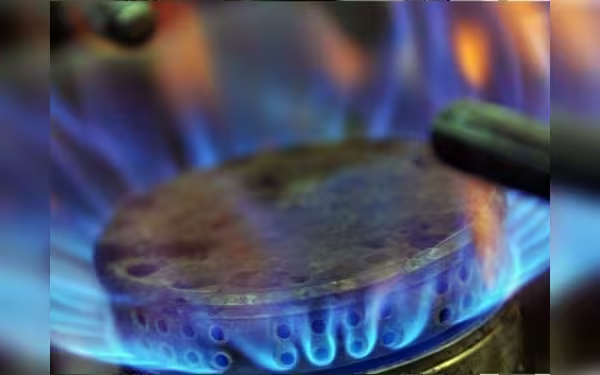Sunday, July 7, 2024 11:32 AM
High-powered committee to assess WACOG feasibility
- Government considering WACOG to address gas pricing inefficiencies
- Proposed National WACOG aims to stabilize gas prices and reduce debt
- Focus on indigenous gas production to enhance economic sustainability
 Image Credits: Business Recorder
Image Credits: Business RecorderThe government is exploring the implementation of a Weighted Average Cost of Gas system to address gas pricing inefficiencies, reduce circular debt, and promote economic sustainability by prioritizing indigenous gas production and streamlining pricing mechanisms.
The government is contemplating the implementation of a Weighted Average Cost of Gas (WACOG) system to tackle the inefficiencies in the current gas pricing structure, which has resulted in a massive circular debt of approximately Rs 3 trillion. A high-powered committee, established by the Prime Minister's office, has been given a strict deadline of 07 days to assess the feasibility of WACOG, signaling a potential significant shift in the energy sector.
The Terms of Reference (TORs) for the committee emphasize the need to study WACOG's impact on various sectors, including its potential to reduce circular debt, lower electricity and fertilizer prices, and enhance overall economic stability. The current reliance on expensive LNG imports, priced at Rs 3700/MMBTU compared to the Average Domestic Sale Price of Rs 1,100, has led to significant financial shortfalls and debt accumulation.
Introducing a system-wide WACOG for LNG and system gas is seen as a crucial step to prevent further debt accumulation and ensure gas prices adjust automatically with international market changes. By applying a uniform weighted average cost of gas across all provinces and consumer categories, the government aims to revitalize industrial activity, ensure timely payments to indigenous gas suppliers, and reduce reliance on costly LNG imports.
The proposed National WACOG of around Rs 2,300/MMBTU is expected to increase domestic gas prices but will still be lower than LNG and LPG prices, addressing market distortions and promoting domestic gas production.
The potential implementation of a system-wide WACOG represents a significant step towards addressing the challenges in the gas sector, aiming to stabilize prices, reduce circular debt, and enhance economic sustainability. By prioritizing indigenous gas production and streamlining pricing mechanisms, the government seeks to create a more efficient and sustainable energy landscape for the nation.













